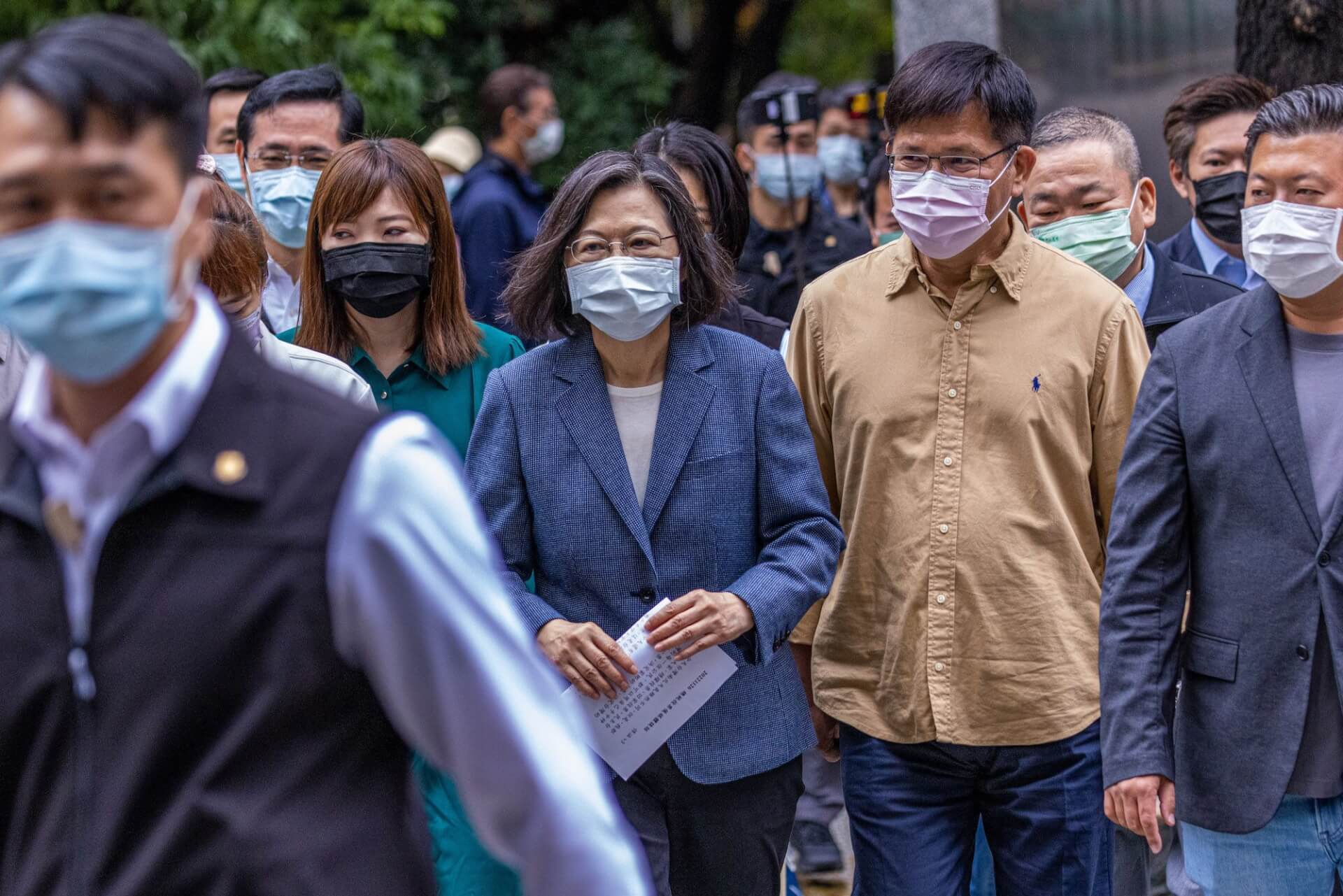On Saturday, after losing in a local election to elect mayors and councillors, Taiwanese President Tsai Ing-wen resigned as the chairperson of the ruling Democratic Progressive Party (DPP).
Local elections are normally centred around domestic issues, but Tsai had underscored to thousands of supporters that the China threat this time is much more severe.
Kuomintang (KMT), the DPP’s main opposition party, secured 13 of the 21 city mayor and county chief seats, including in Taipei, compared to the DPP’s five.
The opposition party has previously accused Tsai and the DPP of being excessively confrontational with Beijing, and of attempting to rally public opinion against KMT for being “red” – a reference to China’s ruling Communist Party’s colours.
The KMT won the election by focusing its campaign on criticising the DPP’s response to the COVID-19 pandemic, especially after cases surged this year.
Tsai, on the other hand, had declared during an election campaign speech earlier this month that so long as she is in power, Taiwan will not relent to China.
“The consensus of the Taiwanese people … is to defend our sovereignty and our free and democratic way of life. There is no room for compromise on this,” she stressed, adding, “My mission as president is to do everything I can to ensure that Taiwan belongs to the Taiwanese.”
The president emphasised that “resorting to war must not be the option for cross-strait relations.”
“Only by respecting Taiwanese people’s insistence on sovereignty, freedom and democracy can we resume positive interactions across the Taiwan Strait,” she stated.
Tsai Ing-wen says she will resign as DPP chairman. pic.twitter.com/Li8HPVidWA
— Michael Smith (@MikeSmithAFR) November 26, 2022
In an attempt to pacify China, she remarked, “I want to tell everyone that the existence of Taiwan and Taiwanese people’s insistence on freedom and democracy are not a provocation to anyone.”
However, she added that she would be willing to work with Beijing to find “mutually acceptable ways” to maintain peace.
It marked the first time that the leader of the self-governing island had so overtly slammed Beijing in the campaign.
Meanwhile, KMT chairman Eric Chu assured that the party would protect the country’s freedom.
“We will insist on defending the Republic of China and protecting democracy and freedom. We will also work hard to keep regional peace,” he told the media, using the island’s official name.
“This is not only a victory for the Kuomintang. It is, most importantly, a victory for the people of Taiwan, a victory for Taiwan's democracy,” Chu said in a televised speech.
This year’s results were largely in line with expectations and similar to the results of the last local elections in 2018. Tsai had also quit her post following a poor show at the 2018 polls.
Taiwan regional leader Tsai Ing-wen announced her resignation as chairman of the Democratic Progressive Party on Sat evening after the Kuomintang (KMT) stomped home to victory in local elections: Xinhua pic.twitter.com/Ih0ZMmA4E8
— Zhang Heqing张和清 (@zhang_heqing) November 26, 2022
Tsai, who will continue serving as the country’s president until 2024, told reporters gathered at the DPP’s headquarters that the results had “failed” the party’s expectations.
“We humbly accept the results and accept the Taiwanese people’s decision,” she said.
“It’s not like the DPP has never failed before… We don’t have time to feel sorry. We fell, but we will stand up again,” she added.
She added that she had already resigned as party chief to “fully bear the responsibilities”.
She also announced that she had rejected Premier Su Tseng-chang’s resignation, another senior DPP member, noting that she has asked him to continue carrying out his responsibilities to maintain political stability so her policies could be effectively implemented.
The Cabinet said that Su has accepted the request due to the need for stability amid the “arduous” domestic and international situation.
Meanwhile, mainland China’s Taiwan Affairs Office said the result was reflective of the mainstream Taiwanese public’s opinion of peace, stability and “a good life.” It also assured that Beijing would continue to promote peaceful cross-Strait relations and oppose Taiwan independence and foreign interference.
That being said, Wang Dan, a student leader of the 1989 democracy movement in China, said that the ruling party’s setback in the local election does not indicate that voters are ditching the Taiwanese government’s “counter-Beijing” strategy.
Wen-ti Sung, a political scientist with the Australia National University’s Taiwan Studies Program, said that Taiwanese voters have “become desensitised to China’s military threat,” adding, “And hence there isn’t quite as much of a perceived urgency to making the issue of survival front and centre.”
“The DPP’s China threat card is facing diminishing marginal returns over time,” he remarked.
The focus will now shift to the 2024 general election, which the DPP won by a landslide in 2020, on a campaign to persevere against Chinese pressure and defend the island’s freedoms.
Tsai, who is currently serving her second term, is barred from re-contesting due to the constitutional term limit.

